If you've never been to Nigeria, here are some pictures showing the royalty and richness in the Ethnic groups found in Nigeria. (From www.nairaland.com)
Nigeria is a very rich cultural center. In fact, our diversity is one of our major strength as a nation. Although it has its own advantages and disadvantages, its advantages surpass the disadvantages. However, most Nigerians are content with just their own ethnic group and this is quite bad for true patriotism and good neighbourliness. Some Nigerians have never even seen people of other ethnic extractions! Others have little or no knowledge of other ethnic groups! Worse still, a few know nothing about their own culture and ethnic extraction. This has become a trend among the recent generation of Nigerians who embrace Western culture, religion and dressing.
This post shall explore an aspect of Nigerian culture: DRESSING! I wont be able to discuss all the ethnic nationalities in the country due to constraints but some major ethnic groups across the geographical spread of Nigeria and how they dress will be underscored in this list.
1. Edo Nation
The Edo People occupy current Edo State. They are made up of the Binis, Afemais, Eshan, etc. They have a very rich cultural heritage. They are all headed by an Oba who delegates duties to various towns and villages through the Odionweres(Elders) and Enogies (Dukes). The Benin Kingdom is one of the oldest and culturally rich pre-colonial African Kingdom. Edo people are quite reclusive in nature. They are colorful and elegant. The use of beads is commonplace in Benin. It symbolises royalty and freedom.
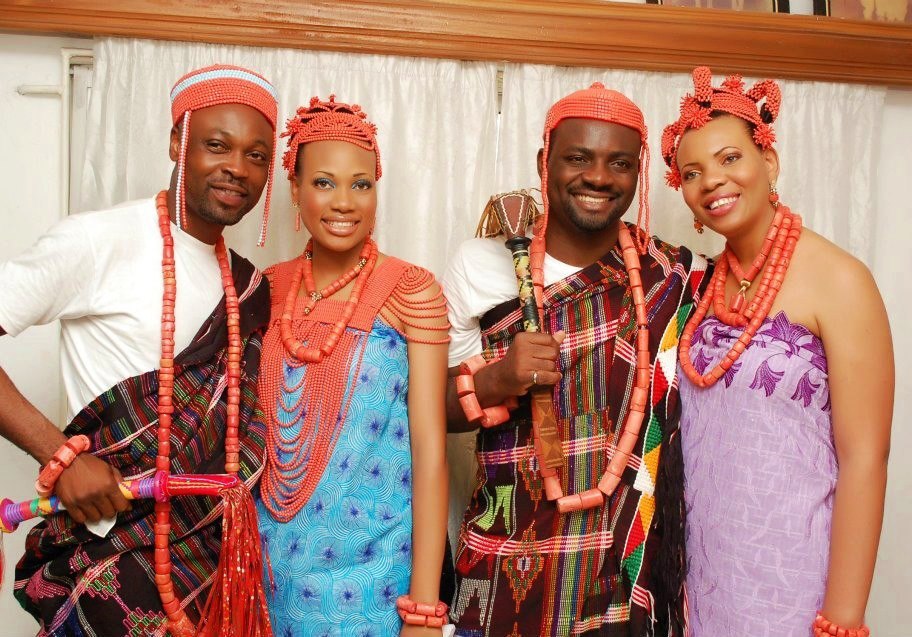
2. Urhobo/Isoko Nation
The Urhobo/Isoko People are the major tribe in Delta State. They occupy Delta Central and Delta South. They are the 5th largest ethnic group in Nigeria, usually dragging position with the Ibibios. The Urhobo people have been grouped here with the Isoko people because of their cultural similarities. They dress traditionally in exactly the same way. The language is overtly similar and the people have same cultural traits. The Urhobo and Isoko people are migrants from Edo nation according to oral history. The people are ruled by an Ovie (King) with variations in appellations such as Orodje, Orosuen, Okobaro, Okpako, etc. The Ovie is seconded by an Otota (Spokesman) who is the traditional Prime Minister. The Otota is also called the "Unuevworo" in Uvwie-Urhobo Kingdom. Urhobo people love titles alot. In most ceremonies, people are announced as "Chief, Professor, Reverend Ovwigho Ogbejiriemu mni cna esq OFR". Urhobos do not have a penchant for hard work and they are known mainly for academic/mental feats. The Urhobo people usually dress by tying a Georgian Wrapper and wearing a Lace Shirt with a Cowboy Hat and a Walking Stick and beads are worn on the hands and neck.
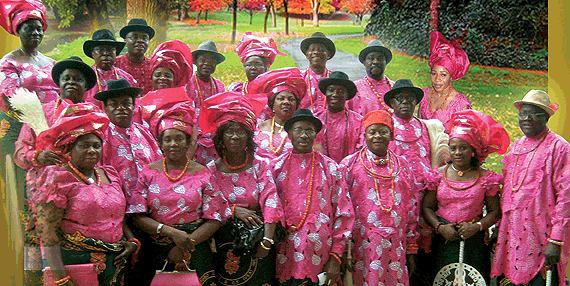
3. Yoruba Nation(This is where I belong...lol)
The Yoruba People occupy South Western and North-Central Nigeria and in states such as Lagos, Oyo, Ekiti, Kwara, Kogi, Ondo, Ogun and Osun. They are one of the three major tribes of Nigeria. They have a rich mythological history which dates back to Oduduwa as their earliest progenitor. The Yoruba people are extremely jovial and respectful. A typical Yoruba man can greet you 100 times in a day if needs be. They love partying and enjoyment generally. Their traditional system revolves around the Ooni of Ife and the Alaafin of Oyo which are seen as apex custodians of Yoruboid culture. Most Yoruba towns and villages are ruled by Obas also called Olus or Deji. They have a rich traditional religious system and a Pantheon of gods akin only to the Greek Pantheon. Yorubas are extremely glamorous in dressing! They look songs and food and are known for owning the Music industry in Nigeria. The Yorubas usually wear "Agbada", a oversized cloth which is worn like a jacket over lace or wrapper based clothes.
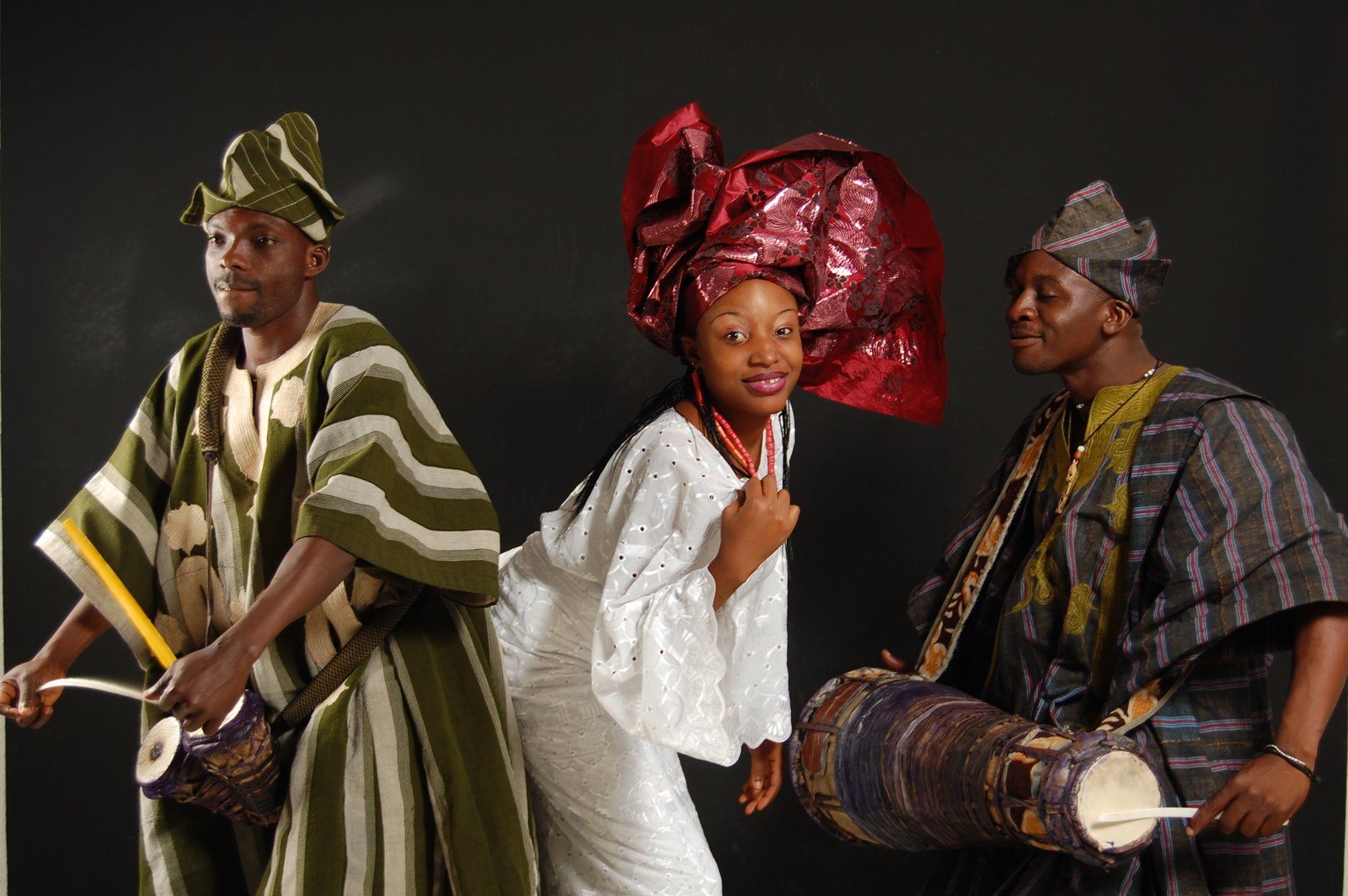
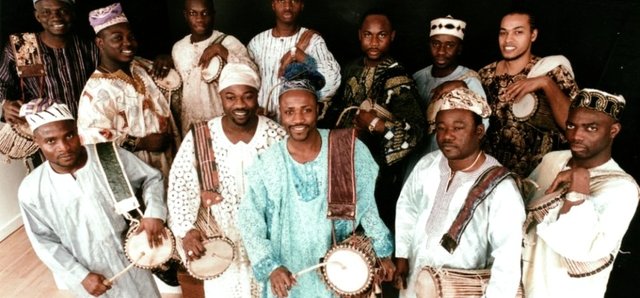
4. Igbo Nation
The Igbo People occupy South Eastern and parts of South-Southern Nigeria which has states such as Anambra, Enugu, Imo, Abia, Ebonyi, Delta North and Rivers. Igbo is one of the three major tribes of Nigeria. Igbo itself doesn't represent any particular group but it is an umbrella term for all Igboid groups such as Mbaise, Ika, Aniocha, Ikwerre(disputed), Orlu, etc. Igbos are highly creative and technocratic in Nature. They do well in business and technology. They have a strong family bond and every successful member of a family becomes the succour for others. Igbo traditional system is modelled after the Benin system. They usually have an Eze or Igwe who is either elected, is the oldest elder in the community or is inherited from father. The Igbos love class and elegance! They are self-preservative and fraternal in nature! They can be found in virtually every nook and cranny of the world. In fact, if you enter a place where there are no Igbos, please run away from there!!!. The Igbos usually dress with a trouser and a simple wool based shirt to go. The women dress like the Edo people with beads on the head. Some Igbo tribes tie a white wrapper across their shoulders.
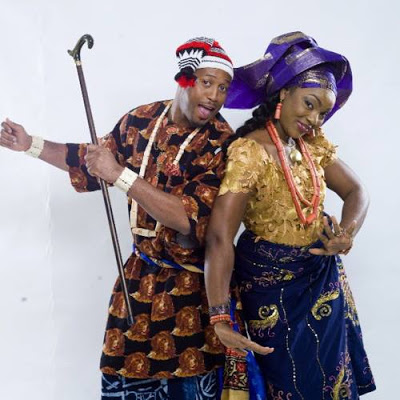
5. Hausa/Kanuri/Fulani Nation
The Hausa/Kanuri/Fulani people occupy Northern Nigeria. These people have been grouped together because of the similarities in their culture, dressing and language. They are the most populated people in Nigeria and make up the major tribe. Apart from the Fulani people, most Nigerians won't be able to differentiate between these tribes. Religion has also helped to strengthen the bond shared by this triad as well as other minorities in their region. These people live a quiet, reclusive and pastoral life. They are not known for extravagance. Their traditional system is modelled after the Islamic method of a Caliphate, Sultanate and Emirate. Most towns are ruled by an Emir or his delegate. The Fulanis are remarkably nomadic in nature! These people are mainly farmers and cattle herders while there are also large pockets of politicians and civil servants. They dress with a "Kaftan" or "Jalabiya". The Fulanis in particular are unique in their dressing. The first picture below depicts Hausa/Kanuri while the second depict Fulani/Fulfulde.
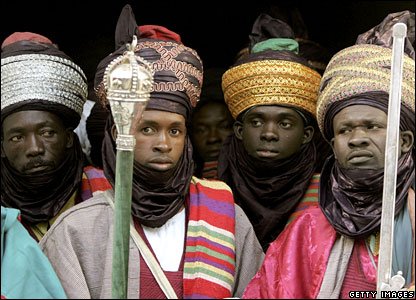
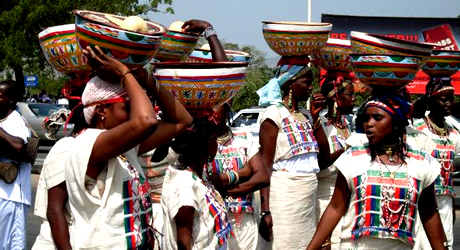
6. Efik/Ibibio/Annang/Oron/Eket Nation
The Efik/Ibibio people occupy Akwa-Ibom and Cross-River States in South-Southern Nigeria. They are one of the lesser known people of Nigeria. However these people have a rich culture and elegance. They are said to be migrants from Cameroon in pre-colonial times. They also have the privilege of being one of the first people to encounter Western education and culture. The cities of Uyo and Calabar today are one of the most neatest, beautiful and secured places in Nigeria. The people are welcoming and have an aversion to violence. Their traditional system revolves around an "Obong" who rules over an "Afaha" (clan). Efik-Ibibio people love food and are known to have a wide variety of delicacies in their menu. Their dress sense is in tandem with that of the Igbo people. However, there are a lot of differences.
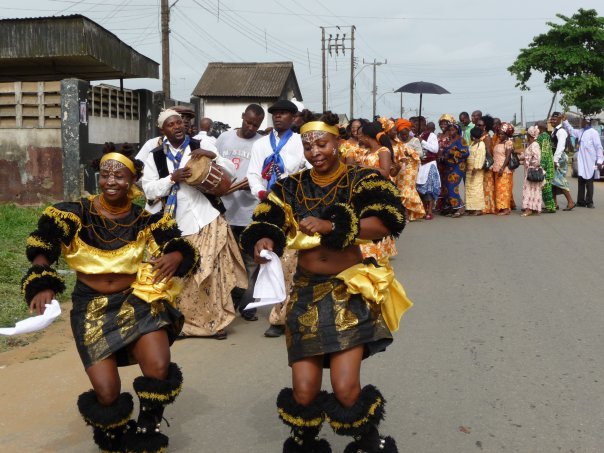
7. Ijaw Nation
The Ijaw people occupy Bayelsa, Rivers, Delta, Akwa-Ibom and Ondo States. They comprise the 4th largest ethnic group in Nigeria. The Ijaws live close to the river and thus, all their myths and legends are water based. Ijaw people are reclusive and quiet. They look drinking as well! Ijaw traditional system is headed by a "Pere" (King) who rules over a clan or village. The Ijaws are fearless and bold! They have cultural similarities with the neighbouring Itsekiri and Urhobo/Isoko people.
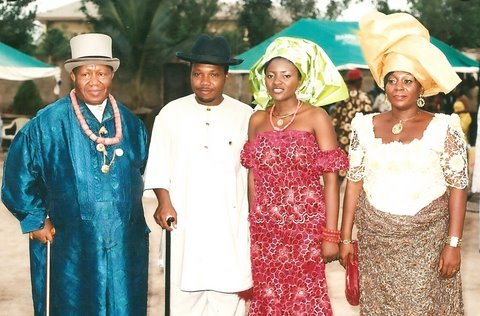
9. Nupe Nation
The Nupes occupy Kwara and Niger State in North-Central Nigeria. They are reclusive and quiet in nature. The Nupes are headed over by the Etsu Nupe. Nupes are communal in nature and they enjoy pastoral and simple life. Most Nupe people are farmers. Nupes also has a strong and deeply woven system of traditional thought that guides their day-to-day life.

~Culled From Nairaland
Which Nigerian Ethnic Group Have You Met Before?
Hi! I am a robot. I just upvoted you! I found similar content that readers might be interested in:
http://www.nairaland.com/2641258/some-nigerian-ethnic-groups-dressing
Downvoting a post can decrease pending rewards and make it less visible. Common reasons:
Submit